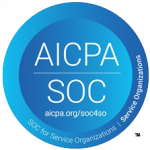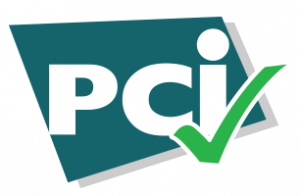
Effective revenue cycle management (RCM) is essential for healthcare providers to maintain financial stability and operational efficiency. However, navigating the complexities of RCM presents several challenges that can significantly impact an organization’s bottom line.
At Revco Solutions, we recognize the multifaceted challenges that providers encounter daily, from data integrity issues to regulatory compliance and everything in between. We’re here to help you pinpoint gaps and optimize your organization’s financial performance with confidence.
Key Takeaways
- Identify Common Pitfalls in Revenue Cycle Management: Issues like poor data integrity, inefficient workflows, and regulatory compliance challenges can lead to claim denials, revenue loss, and operational inefficiencies.
- Understand the Impact on Your Organization: Ineffective revenue cycle management contributes to financial instability, increased denial rates, and extended accounts receivable cycles, making it harder for healthcare organizations to maintain profitability.
- Implement Solutions for Improved Efficiency and Compliance: Leveraging automation, outsourcing RCM functions, enhancing staff training, and adopting proactive denial management strategies can optimize financial performance and reduce risks.
Data Integrity
Poor data integrity practices can lead to claim denials, lost revenue, and operational inefficiencies. A recent survey revealed that 46% of claims are denied due to missing or inaccurate data, underscoring the critical need for precise data management.
Here are some common ways that bad data can make its way into your revenue cycle:
1. Inaccurate Patient Information
- Incorrect Demographics – Misspellings, wrong dates of birth, or missing insurance details lead to claim rejections.
- Duplicate Patient Records – When a single patient has multiple records, billing inconsistencies arise, making reconciliation difficult.
2. Failure to Verify Insurance Eligibility
- Outdated Coverage Details – Submitting claims with inactive or incorrect insurance information results in denials.
- Missing Prior Authorization – Some services require prior authorization, and failure to obtain it results in claim rejection.
3. Coding and Billing Errors
- Mismatched CPT and Diagnosis Codes – Inconsistent coding between clinical documentation and submitted claims leads to denials.
- Upcoding or Undercoding – Both intentional and unintentional coding errors can trigger audits and denials. Ensuring your staff is up to date on their coding certifications is key!
4. Lack of Standardized Charge Capture
- Unbilled Services – Missed charges due to poor documentation cause revenue leakage.
- Overlapping Charges – Double billing for the same procedure leads to compliance risks and potential financial penalties.
5. Poor Communication Between Departments
- Disconnected Systems – Lack of integration between EHR, billing, and financial systems results in discrepancies.
- Incomplete Clinical Documentation – If providers fail to properly document procedures, insurers may reject claims due to a lack of supporting evidence.
6. Inadequate Denial Management
- Failure to Track Trends – Not analyzing common denial reasons prevents organizations from implementing corrective actions.
- Ignoring Timely Filing Limits – Each payer has a deadline for claim submission, and missing these deadlines results in automatic denials.
7. Lack of Regular Audits and Quality Checks
- No Data Validation Processes – Without routine audits, errors go unnoticed, leading to compounding financial issues.
- Manual Data Entry Reliance – Human errors in manual entry increase inaccuracies and reconciliation issues.
By addressing these practices, healthcare providers can enhance their data accuracy, reduce denials, and improve revenue cycle efficiency. Implementing automation, regular training, and cross-department collaboration can significantly mitigate these risks.
For example, at Revco Solutions, our approach involves multiple checks and balances to ensure claims are followed up on, processed by the insurance company, and reconciled with your accounts receivable. This meticulous process helps us prevent repetitive tasks and process deficiencies that can lead to revenue loss.
Want more insightful tips?
performance-driving RCM insights?
Data is at the heart of every successful revenue cycle management strategy. Accurate data reconciliation is fundamental to preventing revenue loss. Without it, unprocessed claims, missed charges and data entry errors run rampant. Discrepancies between patient records, billing information, and insurance claims can lead to denied claims and delayed payments, all impacting your bottom line. Partnering with a revenue cycle expert like Revco can help maintain accurate records, ensure consistency, reduce data discrepancies, and enhance financial performance
Workflow Inefficiencies
Inefficient workflows contribute to increased claim delays and denials, extended accounts receivable periods, and reduced cash flow. In fact, a recent survey indicated that nearly 90% of denials are preventable, highlighting the need for effective workflow processes.
It’s extremely common for healthcare organizations to be outdated in their revenue cycle management workflows as their focus is stretched thin among other competing issues like balancing rising costs with shrinking margins, staffing shortages and retention, and – of course – patient care. Some practices that contribute to these inefficiencies are as follows:
1. Manual and Redundant Processes
- Paper-Based Systems – Relying on manual data entry instead of automated systems leads to errors and delays.
- Lack of System Integration – When EHR, billing, and scheduling systems don’t communicate, staff must enter the same data multiple times, increasing the risk of inconsistencies.
2. Poor Front-End Patient Registration and Verification
- Incomplete Patient Information – Missing details during check-in can cause claim denials later.
- No Real-Time Eligibility Checks – Failure to verify insurance up front results in billing issues and denied claims.
3. Ineffective Claim Submission and Follow-Up
- Ineffective DNFB Management– Delays in final billing due to incomplete documentation, coding backlogs, or workflow inefficiencies can lead to unnecessary reimbursement lags.
- Lack of a Denial Management Strategy – Not tracking common denial reasons prevents organizations from making proactive improvements.
4. Lack of Coordination Between Departments
- Siloed Communication – Billing, coding, utilization review, and clinical staff working independently rather than collaboratively leads to errors and bottlenecks.
- Delayed Charge Capture – When providers fail to submit charges promptly, billing backlogs increase.
5. Insufficient Use of Automation and Analytics
- Failure to Automate Repetitive Tasks – Manual handling of tasks like appointment reminders, claim and eligibility scrubbing, and payment posting slows down processes.
- No Predictive Analytics for Denials – Without data-driven insights, organizations miss opportunities to preemptively correct claim errors.
6. Staffing Shortages and Poor Training
- High Turnover Without Process Documentation – If departing staff take undocumented knowledge with them, new employees struggle to maintain efficiency.
- Inconsistent Training Programs – Inadequate staff training leads to errors in registration, coding, and billing that disrupt cash flow.
7. Lack of Performance Monitoring and Continuous Improvement
- No Key Performance Indicator (KPI) Tracking – Without monitoring claim denial rates, accounts receivable days, or collection rates, inefficiencies go unchecked.
- Failure to Adapt to Regulatory Changes – Outdated processes that don’t align with new payer requirements lead to repeated denials and rework.
Do any of these sound familiar to your healthcare organization?
Streamlining processes, from patient registration to final payment, enhances accuracy and accelerates revenue collection. Adopting electronic health records (EHRs) and automation tools can significantly improve workflow efficiency. For instance, automating patient eligibility verification reduces errors and saves time, ensuring services are covered by insurance and improving financial stability.
Our workflow optimization process begins with a thorough assessment of your current workflows to identify areas where improvements can be made. We focus on eliminating manual intervention and inefficient workflows that slow down your operations. By automating key processes and implementing best practices for workflow management, we can help you achieve greater operational efficiency and reduce costs.
Automating RCM processes can reduce claim denials and decrease days in accounts receivable, thereby improving cash flow and operational efficiency.
Revenue cycle management is full of moving parts, and as we’ve seen, issues like data integrity and workflow inefficiencies can have a profound impact on your organization’s financial health. By addressing these early-stage challenges, healthcare providers can lay a strong foundation for more advanced RCM strategies.
In Part 2 of this series, we’ll take a closer look at denials management, staffing challenges, and regulatory compliance—three key areas that, if left unchecked, can drastically reduce revenue and increase administrative burden. Stay tuned for proven strategies to strengthen your processes and boost your organization’s overall financial performance.






